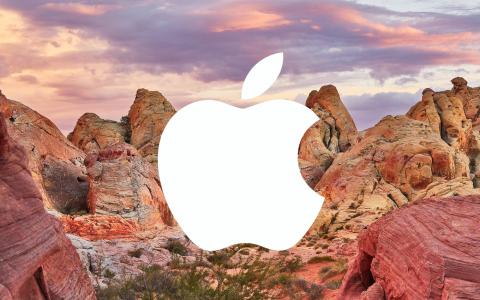
The state next door offers Silicon Valley giants an obvious financial edge — and highly compensated executives see the personal benefits as well.
Now that the global tax landscape has tilted back to onshore operations, multinational players like Apple are cheerfully investing at home again.
But location still matters. Apple is getting serious about building out its corporate presence across the Nevada border, barely four hours’ drive from the sprawling “mothership” headquarters in Cupertino.
They’ve committed to spending at least $1 billion across state lines. And as the company’s very well paid executives see what a difference that afternoon drive makes, I suspect they’re going to push to park their personal funds across the border as well.
Reno makes sense
Tim Cook himself flew out to Reno to break ground on Apple’s new $4 million shipping warehouse. It’s a small piece of the company’s overall footprint — they just spent enough renovating their HQ to build 1,000 similar facilities — but it’s also only the start of a more substantial construction program.
The goal is to spend $1 billion building out a presence in Nevada over the next decade, which is probably going to turn into green data centers, research labs and other cutting-edge sites.
Granted, Cook is getting $89 million in property abatements in exchange for picking the state, but he’s rolling that discount right back into additional projects.
After all, the minute he crossed that state line he started saving the company a whole lot of money.
Nevada was already one of the most tax-efficient places in the country to do business. Now it’s more competitive against offshore destinations as well.
The math is as simple as it gets. Apple could keep its operations in California and pay the state 8.8% on all profit. Four hours away, those exact same activities only accrue a minimal tax on gross receipts.
Granted, paying per dollar of revenue eliminates opportunities to game profit margins in order to lower the IRS bill. But in Nevada, the rate on the gross is so low — 0.9% for manufacturing — that it’s better than anything the accountants could dream up.
The math on the back of my envelope says every dollar of business Silicon Valley migrates ultimately delivers about $0.08 more for shareholders. For Apple, that’s as much as $4 billion a year or a one-time 9% growth bump.
Both are factors that keep otherwise punchy investors happy with the stock. And given the choice, any reasonably alert steward of shareholder capital is going to take the richer math that comes with the change in venue.
Headquarters can stay where it is, paying a premium to soak in that world-class California quality of life. But satellite offices need to go where the rules are most favorable.
For Apple, odds are good that the intellectual property is going to move — Nevada doesn’t charge a cent on patent royalties — and from there, who knows?
Money is flowing back from overseas. It’s going to seek the best possible onshore jurisdiction as its new home.
The personal edge
Similar logic applies on the individual level. As Silicon Valley produces billionaires, the gap between California’s 13.3% top state income tax and Nevada’s zero rate for residents adds up to staggering amounts of real money.
Of course diehard Californians don’t want to relocate, but their income-producing assets can decouple from their personal state of residence.
Nevada has a thriving trust services industry populated by companies that stay busy creating and managing trusts for out-of-state families. Transfer the assets to a Nevada non-grantor trust and the beneficiaries get the benefits of more favorable rules.
It doesn’t work so well with tangible property, but most of Silicon Valley’s wealth is tied up in more “virtual” realities anyway: patents, shares and share options, private equity.
With Apple, those shares pay significant dividends now, so in theory if Tim Cook created a Nevada trust his heirs could live well for generations without having to liquidate the stock or trigger a capital gain.
Because these trusts are funded via “incomplete” transactions, the grantor retains some control over the assets in life and avoids gift tax complications. But in Nevada, that incomplete gift still qualifies for protected status against creditors, which is often a plus for highly compensated people in any litigious environment.
The cross-border move isn’t for everyone. You need a lot of wealth and the ability to transfer it across state lines for it to make sense.
Tim Cook qualifies. If he isn’t at least hearing about what a personal Nevada trust could do for his estate plan, I worry about his advisors.
After all, he’s right there on the ground in Reno watching the numbers add up for the company he runs. His personal portfolio is so intimately entwined with the company’s fortunes that he already stands to make a lot of money moving as much as he can to Nevada.
Taking his personal wealth on that four-hour drive is how he keeps it.



